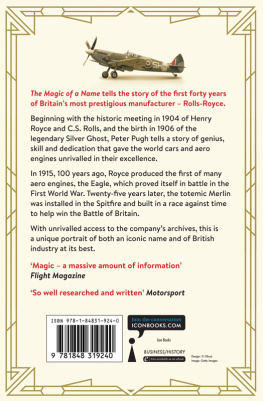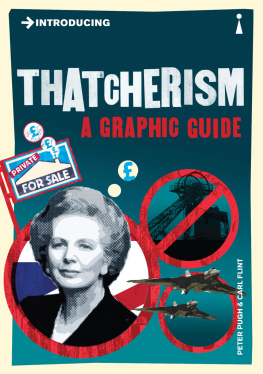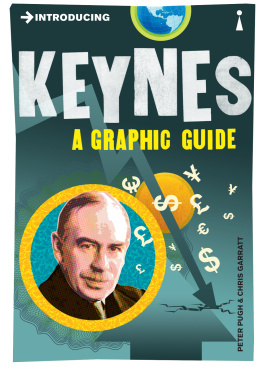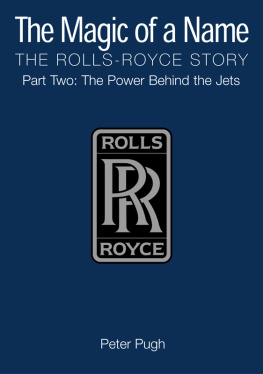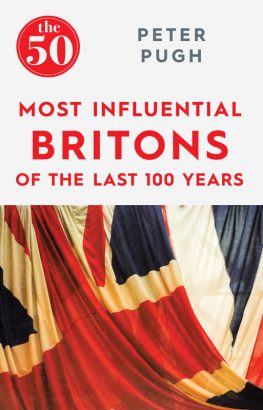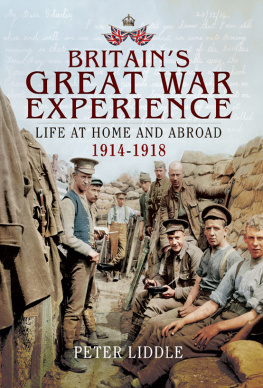CONTENTS
INTRODUCTION
E very publishing season sees the launch of books on famous characters of the twentieth century and many high achievers have more than one book about them. For example, the number of books on Winston Churchill is in the twenties or thirties and recently there was another book on Clement Attlee.
This new series Icon is launching will cover the last 100 years of British history in five-year splits the first two are 192125 and 192630 and, as well as giving the background, both social and economic, of those years, will concentrate on the interesting and often misunderstood characters that featured in them.
One of the main characters in this second book, 192630, is Radclyffe Hall, the lesbian author who wrote books about homosexuality at a time when it was still frowned upon and indeed was illegal. Also featured is the famous inventor of television, John Logie Baird. Then there is the founder of the first mass-market motor car, William Morris, later Lord Nuffield, as well as the modernist writer Virginia Woolf. Staying with the world of the arts, we shall also discuss the playwright, novelist and short story writer Somerset Maugham, as well as the famous wit, playwright, composer and actor Nol Coward. In addition, Ramsay MacDonald, the first Labour prime minister, was a prominent figure during these years.
MONETARY VALUES
M oney and its value is always a problem when writing about a period that stretches over a number of years. Furthermore, establishing a yardstick for measuring the change in the value of money is not easy either. Do we take the external value of the or what it will buy in the average (whatever that may be) weekly shopping basket? Do we relate it to the average manual wage? As we know, while prices in general might rise, and have done so in this country every year since the Second World War, the prices of certain products might fall. However, we have to make some judgements. We can only generalise, and I think the best yardstick is probably the average working wage.
Taking this as the yardstick, here is a measure of the sterling relative to the in 2017.
Apart from wartime, prices were stable for 250 years, but prices began to rise in the run-up to the First World War.
16651900 multiply by 120
19001914 multiply by 110
191839 multiply by 60
194550 multiply by 35
195060 multiply by 30
196070 multiply by 25
197074 multiply by 20
197577 multiply by 15
197880 multiply by 8
198087 multiply by 5
198791 multiply by 2.5
199197 multiply by 2
19972010 multiply by 1.5
Since 2010, the rate of inflation, by the standards of most of the twentieth century, has been very low, averaging, until very recently, less than the 19972010 Labour governments originally stated aim of 2.5 per cent (since reduced to 2 per cent). You dont need me to tell you that some things such as telephone charges and many items made in the Far East, notably China, can go down in price while others, such as houses, have moved up very sharply from 1997 to 2017.
TIMELINE FOR 192630
- 1926 -
April | The Duchess of York gives birth to a daughter, Princess Elizabeth |
May | A General Strike in support of mine workers is declared. It is the first such strike in British history. It collapses nine days later. Only the miners continue the fight Rudolph Valentino dies suddenly of peritonitis |
August | England wins the Ashes for the first time in fourteen years, beating Australia by 289 runs in the fifth Test |
November | An Imperial conference announces that Canada, Australia, New Zealand, South Africa and Newfoundland are to have dominion status. They will be self-governing, and will have equal standing with Britain within the Commonwealth |
Books
Seven Pillars of Wisdom by T.E. Lawrence
Winnie-the-Pooh by A.A. Milne
Films
Ben Hur starring Ramon Novarro (released December 1925 but became popular in 1926)
Don Juan starring John Barrymore
The General starring Buster Keaton
- 1927 -
January | It becomes possible to telephone New York from London at a cost of 15 (900 in todays money) for three minutes |
May | Charles Lindbergh arrives in Paris after taking 33 hours to fly solo from New York |
November | In the first London-to-Brighton car rally John Bryces car is registered as competitor Number 1 Joseph Stalin expels Leon Trotsky and other opponents from the Soviet Communist party |
Books
Tarka the Otter by Henry Williamson
To the Lighthouse by Virginia Woolf
Films
The Jazz Singer
The Kid Brother starring Harold Lloyd
Flesh and the Devil starring Greta Garbo
- 1928 -
March | The voting age for women is lowered to 21. Now women have the same voting rights as men |
May | The Bank of England plans to issue 1 and 10s notes, in addition to the 5 banknotes and larger denominations which are already in circulation |
September | Alexander Fleming discovers penicillin |
October | The Soviet Unions first five-year plan begins. From now on, all factories and farms work to fulfil norms of production handed down by the state |
November | Hirohito is crowned Emperor of Japan |
Books
Lady Chatterleys Lover by D.H. Lawrence
Orlando by Virginia Woolf
Films
Steamboat Willie, the first Mickey Mouse cartoon
Two Tars starring Stan Laurel and Oliver Hardy
- 1929 -
March | A record 66 runners compete in the Grand National at Aintree |
June | A Labour government comes to power under Ramsay MacDonald
Margaret Bondfield, minister of labour, is the first female Cabinet member |
October | The New York Stock Exchange crashes |
Books
Goodbye to All That by Robert Graves
A Farewell to Arms by Ernest Hemingway
Films
Big Business starring Laurel and Hardy
Bulldog Drummond
- 1930 -
March | Gandhi tells British Viceroy of India to expect civil disobedience |
July | Donald Bradman scores record 309 runs in a day |
September | National Socialists win 107 seats in German Parliament |


